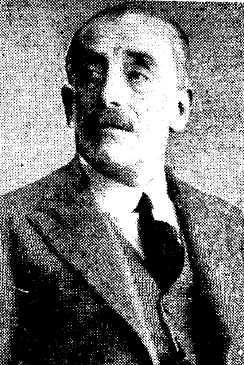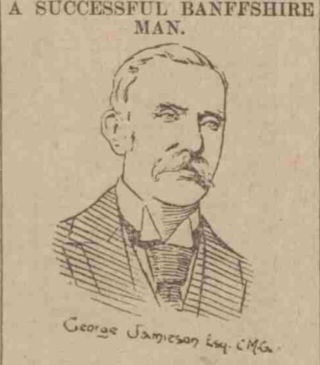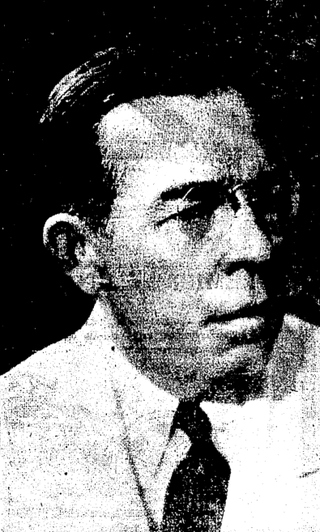Related Research Articles

Charles Wycliffe Goodwin (1817–1878) was an English Egyptologist, bible scholar, lawyer and judge. His last judicial position was as Acting Chief Judge of the British Supreme Court for China and Japan.

Chishima was an unprotected cruiser of the Imperial Japanese Navy. The name Chishima is the Japanese name for the Kurile Islands. Chishima was used by the Imperial Japanese Navy as an aviso for scouting, reconnaissance and delivery of high priority messages.

Britain had a functioning consular service in Japan from 1859 after the signing of the 1858 Anglo-Japanese Treaty of Amity and Commerce between James Bruce, 8th Earl of Elgin and the Tokugawa Shogunate until 1941 when Japan invaded the British colonial empire and declared war on the United Kingdom.

The United States Court for China was a United States district court that had extraterritorial jurisdiction over U.S. citizens in China. It existed from 1906 to 1943 and had jurisdiction in civil and criminal matters, with appeals taken to the U.S. Court of Appeals for the Ninth Circuit in San Francisco.

Lebbeus Redman Wilfley was an American attorney who served as Attorney General of the Philippines and as a judge of the United States Court for China. He is also known for his investigation into the Torreón massacre.

The British Supreme Court for China was a court established in the Shanghai International Settlement to try cases against British subjects in China, Japan and Korea under the principles of extraterritoriality.

Sir Hiram Shaw Wilkinson, JP, DL (1840–1926) was a leading British judge and diplomat, serving in China and Japan. His last position before retirement was as Chief Justice of the British Supreme Court for China and Corea.

Hiram Parkes "Harrie" Wilkinson, KC served as Crown Advocate of the British Supreme Court for China and Japan from 1897 to 1925. He was also Acting Assistant Judge of the British Court for Siam from 1903 to 1905 and Judge of the British High Court of Weihaiwei from 1916 to 1925.

Sir Nicholas John Hannen was a British barrister, diplomat and judge who served in China and Japan. He was the Chief Justice of the British Supreme Court for China and Japan from 1891 to 1900 and also served concurrently as Consul-General in Shanghai from 1891 to 1897. He was judge of the British Court for Japan from 1881 to 1891. He was the brother of James Hannen, a noted British judge of the 19th century. His son, Nicholas "Beau" Hannen was a famous actor of the early and mid-20th century.

Sir Havilland Walter de Sausmarez, 1st Baronet was a judge of various British colonial or consular courts in Africa and Asia, the Ottoman Empire and China. His last judicial position before retirement was as Chief Judge of the British Supreme Court for China. He later served as Bailiff of Guernsey.

The Normanton incident was a set of reactions and events surrounding the sinking of a British merchant vessel named Normanton off the coast of what is now Japan's Wakayama Prefecture on October 24, 1886. When the Normanton ran aground, the ship's officers appear to have seized the lifeboats for the Europeans alone. Among the Asians aboard there were no survivors. Uproar in Japan obliged the British Consular Court to revisit its initial exoneration of the captain and to accept there had been criminal misconduct. But no compensation was offered. In Japan, the incident was widely interpreted as a further illustration of the humiliations visited upon the country since her forced opening to the West in the 1850s, and it led to new and persistent calls for the revision of the "unequal treaties".

Sir Edmund Grimani Hornby was a leading Italian British judge, with family interests in diamond-rich Antwerp. He was the founder and Chief Judge of both the British Supreme Consular Court at Constantinople and British Supreme Court for China and Japan.

Sir Skinner Turner was a British judge who served in Kenya, Uganda, Siam and China. His last position was as the Chief Judge of the British Supreme Court for China from 1921 to 1927.

Sir Peter Grain was a British judge who served in Zanzibar, Egypt, Constantinople and China. He was the Chief Judge of the British Supreme Court for China from 1927 to 1933 and also judge of the High Court of Weihaiwei from 1926 to 1930.

Sir Richard Temple Rennie was a British barrister and judge who served in China and Japan. He was the Chief Justice of the British Supreme Court for China and Japan from 1881 to 1891. He was judge of the British Court for Japan from its creation in 1879 to 1881.
Robert Anderson Mowat, was a British judge and diplomat, serving in China and Japan. His last position before retirement was as Judge of the British Court for Japan.

Sir Frederick Samuel August Bourne (1854–1940) was a British judge, diplomat and botanist who served in China. His last positions before retirement were concurrently as Assistant Judge of the British Supreme Court for China and Judge of the High Court of Weihaiwei.

George Jamieson CMG (1843-1920) was a British diplomat and judge who served in China. His last position before retirement from government service was as British Consul-General in Shanghai.

Milton John Helmick (1885–1954) was Attorney General of New Mexico from 1923 to 1925, a judge in Albuquerque from 1925 to 1934, and the judge of the United States Court for China from 1934 to 1943.
Consular courts were law courts established by foreign powers in countries where they had extraterritorial rights. They were presided over by consular officers.
References
- 1 2 3 Chang 1984.
- ↑ Findlay Richardson & Co vs Pitman & Co, Japan Weekly Mail, 20 July 1872, pp. 445-447
- ↑ Reg (on the prosecution of the Imperial Customs) vs John Hartley, Japan Times , 2 March 1878
- ↑ "READING ROOM | YOKOHAMA ARCHIVES OF HISTORY". www.kaikou.city.yokohama.jp. Retrieved 1 February 2020.
- ↑ Kobe Weekly Chronicle, 17 January 1900, p. 47
- ↑ "THE CAREW POISONING CASE: IN H.B.M'S. COURT FOR JAPAN BEFORE ME. JUSTICE MOWAT AND A JURY TRIAL OF MRS. W.R.H. CAREW FOR MURDER TWELFTH DAY'S PROCEEDINGS CONTINUED FOURTEENTH DAY'S PROCEEDINGS THE SIXTEENTH DAY'S PROCEEDINGS." North China Herald , 5 February 1897, page 207. Available from ProQuest, accessible from the Wikipedia Library.
- ↑ "THE CAREW POISONING CASE: IN H.B.M'S. COURT FOR JAPAN BEFORE MR. JUSTICE MOWAT AND A JURY TRIAL OF MRS. W.R.H. CAREW FOR MURDER SEVENTEENTH DAY'S PROCEEDINGS EIGHTEENTH DAY'S PROCEEDINGS NINETEENTH DAY'S PROCEEDINGS TWENTIETH DAY'S PROCEEDINGS FINAL DAY'S PROCEEDINGS." North China Herald , 12 February 1897, pp. 259-264. Available from ProQuest, accessible from the Wikipedia Library.
- ↑ Whittington-Egan, Molly (1996). Murder on the Bluff: Carew Poisoning Case. Neil Wilson Publishing. ISBN 1-89778452-X.
- ↑ Sourced from Foreign Office List entries for each individual